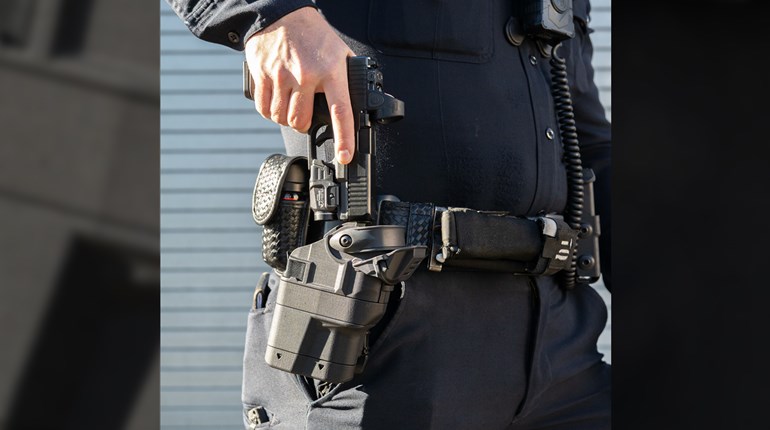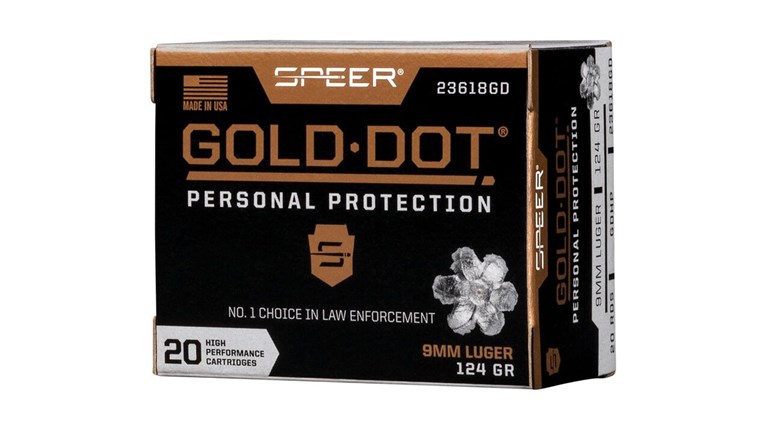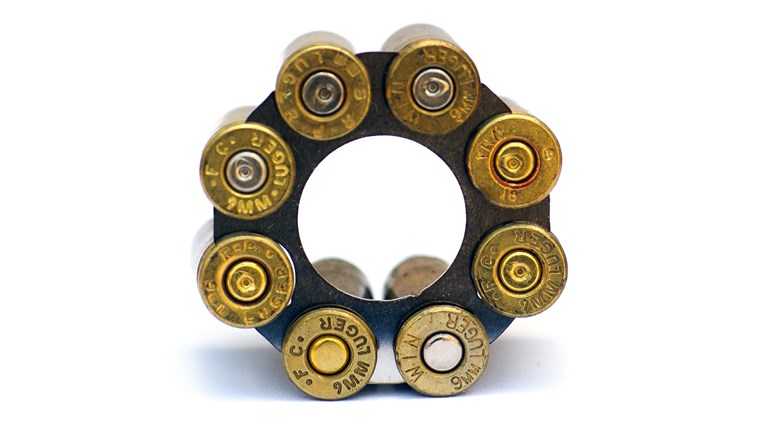
Most people who enjoy hunting and fishing have likely daydreamed about a career as a state wildlife officer, also sometimes known as a game warden. After all, you’d get to hunt and fish every day, right? Hardly.
For five years early in my career, I was a state wildlife officer with the Ohio Department of Natural Resources, Division of Wildlife, so I'm very familiar with this particular outdoor career choice. The duties of the job are many and vary somewhat from state to state. But in general, most of the work can be boiled down to three parts: wildlife law enforcement, fish and wildlife management and public relations/education.
The job of a state wildlife officer is demanding, requiring you be in top physical shape as well as possessing at least a basic knowledge of hunting, fishing, trapping and other outdoor skills. The good news is that state wildlife agencies across the country are constantly recruiting qualified applicants. And if you’re a woman, many of these agencies are now actively seeking females to be wildlife officers.
Wildlife Law Enforcement
As a state wildlife officer, your primary job duty will be to enforce the wildlife laws of the state where you’re employed. This could be as basic as routinely checking hunters and anglers for license compliance, or as complicated as investigating sophisticated poaching rings. It might also include investigating water-pollution cases where fish and other wildlife were killed, or possibly investigating a hunting accident. You just never know what a day on the job may bring.
Is the job dangerous? Yes, it can be. You should know that wildlife officers across the country have been killed in the line of duty. In some rural areas, where law enforcement officers in general are sparse, wildlife officers may even be expected to assist other law-enforcement agencies, such as sheriff’s deputies or state police, during emergencies.
Fish and Wildlife Management
This part of a wildlife officer’s job mainly consists of assisting fish and wildlife biologists. There may be fish to stock, wildlife surveys to run or habitat-enhancement work to perform. Most officers view these tasks as a welcome break from their more regular law enforcement duties and are eager to pitch in and help. In addition, it gives them more knowledge of the wildlife in their particular area of assignment, making them better law enforcement officers.
Public Relations/Education
A uniformed wildlife officer is often the only employee of a state wildlife agency that the general public ever sees. That said, the officer represents the entire agency, so it’s important how he/she conducts themselves and gets involved in the local community. For instance, an officer might be called upon to teach a segment of a hunter-education course, appear on a radio or television show, attend a school career day, or just answer a few questions from sportsmen informally while down at the local coffee shop.
How to Prepare…
Modern-day state fish and wildlife agencies have become very sophisticated and scientific in their approach to wildlife management, and they expect their officers to be just as savvy. Long gone are the days when a good ol' boy could walk out of the woods and get a job as a “game warden.” Today, wildlife officer candidates in most states are required to have at least a two-year associate’s college degree, if not a four-year bachelor’s degree, in natural resources management or a related field. Previous law enforcement training and a working knowledge of firearms is also helpful.
Then, if you are fortunate enough to be chosen for the job, months of additional instruction will no doubt be required at a wildlife officers’ training academy. There you will be taught wildlife law enforcement techniques, as well as the other skills you’ll need upon graduation and assignment to the field.
How much money does a wildlife officer make? Again, it varies from state to state. You’ll earn enough to support a family, and should you decide to make the job a career you may also earn a state retirement; but suffice to say you won’t get rich. However, the job of wildlife officer has rewards other than monetary…the “intangibles.”
If you thrill to an early-morning sunrise over a waterfowl marsh, the sight of a trophy buck jumping a barbed-wire fence, or the majesty of an eagle taking wing, this job just might be for you. It’s a profession that is very fulfilling and rewarding in many ways, but keep in mind that the job of a state wildlife officer is definitely not nine-to-five.
Think you’ve got what it takes? To learn more, contact the state wildlife agency where you would like to work.





































